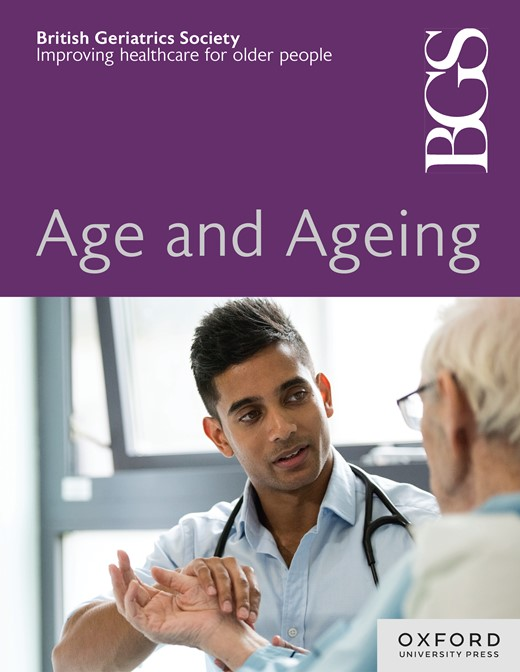认知储备及其对痴呆诊断后认知和功能能力、身体活动和生活质量的影响:来自改善痴呆体验和增强积极生活(IDEAL)研究的纵向研究结果
IF 6
2区 医学
Q1 GERIATRICS & GERONTOLOGY
引用次数: 0
摘要
背景认知储备的概念可以解释神经病理变化易感性的个体差异。研究表明,一生的经历会对认知储备产生影响,并且假设在诊断出痴呆症后,更大的储备水平与疾病加速进展有关。目的探讨认知储备对痴呆患者认知和功能能力、身体活动及生活质量的纵向影响。设计纵向队列设计。背景和参与者:基线时1537名轻度至中度痴呆患者,12个月随访时1183名,24个月随访时851名,来自IDEAL研究。方法对认知储备进行综合潜测,包括教育、职业成就和晚年休闲活动等各个生活阶段。采用潜在增长曲线模型研究认知储备对认知、功能能力、身体活动和生活质量在基线和随时间的影响。结果较高的认知储备与基线时更好的认知、更少的功能困难、更多的身体活动和更好的生活质量相关,但随着时间的推移,与认知衰退加速和依赖性增加相关。2年后,那些初始储备较高的人仍然比储备较低的人有更好的认知能力。结论:认知储备在最初延缓痴呆进展中可能很重要,但一旦痴呆临床表现明显,认知储备可能与加速恶化有关,这可能是因为痴呆症的神经病理阶段更晚期。参与休闲活动是认知储备的一个潜在可改变的领域,值得进一步研究。本文章由计算机程序翻译,如有差异,请以英文原文为准。
Cognitive reserve and its impact on cognitive and functional abilities, physical activity and quality of life following a diagnosis of dementia: longitudinal findings from the Improving the experience of Dementia and Enhancing Active Life (IDEAL) study
Background The concept of cognitive reserve may explain inter-individual differences in susceptibility to neuropathological changes. Studies suggest that experiences over a lifetime impact on cognitive reserve, and it is hypothesised that following a dementia diagnosis, greater reserve levels are linked to accelerated disease progression. Objective To investigate the longitudinal impact of cognitive reserve on cognitive and functional abilities, physical activity and quality of life in people with dementia. Design Longitudinal cohort design. Setting and participants Participants were 1537 people with mild-to-moderate dementia at baseline, 1183 at 12 months follow-up and 851 at 24 months follow-up, from the IDEAL study. Methods A comprehensive latent measure of cognitive reserve incorporated domains from all stages of life: education, occupational attainment and later-life engagement in leisure activities. The impact of cognitive reserve on cognition, functional abilities, physical activity and quality of life at baseline and over time was investigated using latent growth curve modelling. Results Higher cognitive reserve was associated with better cognition, fewer functional difficulties, more physical activity and better quality of life at baseline but was associated with accelerated cognitive decline and greater dependence over time. After 2 years, those with higher initial reserve were estimated to still have better cognition than those with low reserve. Conclusions Cognitive reserve may be important in initially delaying dementia progression but is linked with accelerated deterioration once dementia becomes clinically evident, likely because of the more advanced neuropathological stage of the condition. Engagement in leisure activities is a potentially modifiable domain of cognitive reserve warranting further investigation.
求助全文
通过发布文献求助,成功后即可免费获取论文全文。
去求助
来源期刊

Age and ageing
医学-老年医学
CiteScore
9.20
自引率
6.00%
发文量
796
审稿时长
4-8 weeks
期刊介绍:
Age and Ageing is an international journal publishing refereed original articles and commissioned reviews on geriatric medicine and gerontology. Its range includes research on ageing and clinical, epidemiological, and psychological aspects of later life.
 求助内容:
求助内容: 应助结果提醒方式:
应助结果提醒方式:


